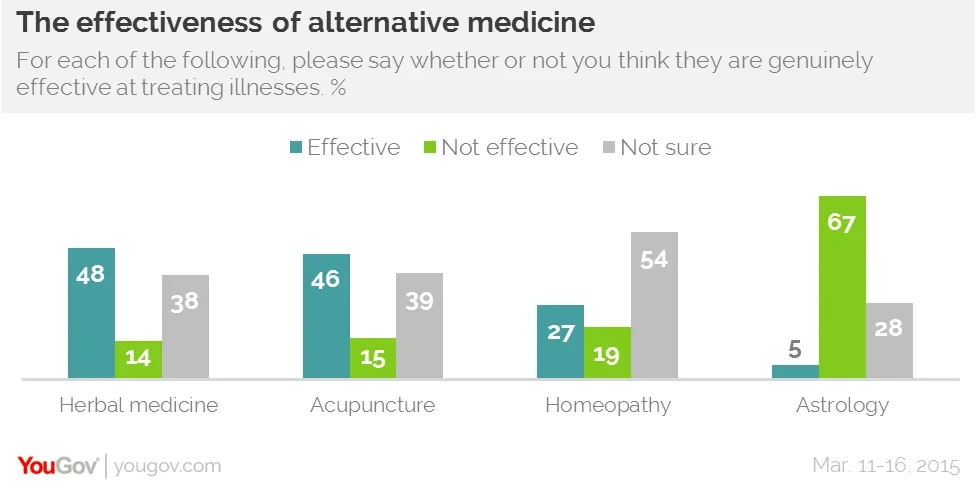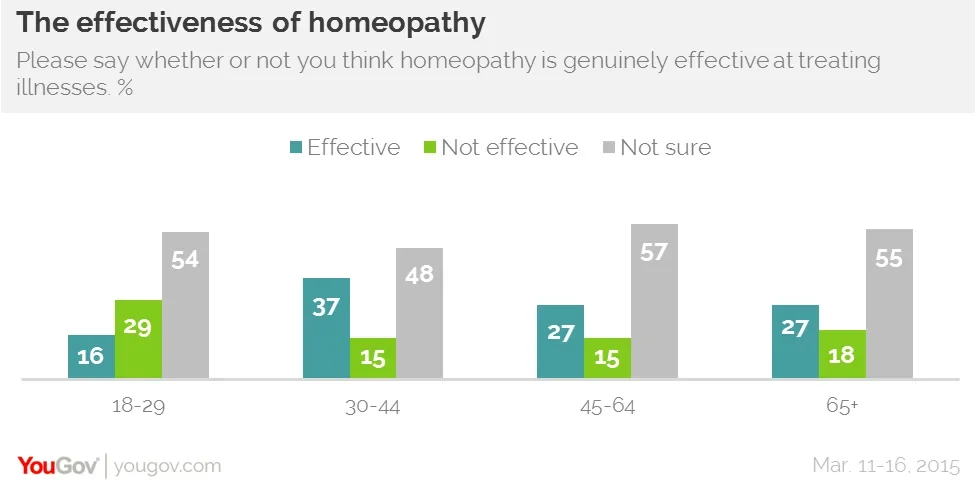Over a quarter of Americans say that homeopathy is an effective treatment, and nearly half say the same about herbal medicine and acupuncture
The National Health and Medical Research Council (NHMRC) of Australia recently published a new study and review of existing studies which conclusively demonstrated that homeopathic treatments have no clinical value. The report found that, in reliable and rigorous studies, homeopathic treatments never outperformed placebos and any studies which did show some sort of clinical benefit to homeopathy were poorly conducted. Homeopathy is the idea that infintesimally small quantities of toxins and other materials which cause certain symptoms in healthy people will, in sick people, make them get better.
YouGov's latest research shows that many Americans do think that alternative medicine can be genuinely effective at treating illnesses, but that some are viewed more skeptically than others. 48% say that herbal medicine can be genuinely effective, while 14% say that it is not effective, with similar percentages (46% to 15%) for acupuncture. 27% of Americans say that homeopathy is an effective treatment but 19% say that it isn't, with a majority of the public (54%) saying that they aren't sure either way. The vast majority of people (67%) reject the effectiveness of astrology, with only 5% viewing it as an effective medical strategy.

Homeopathy, one of the most controversial alternative medicines, is most trusted by people aged between 30 and 44. 37% of people in their 30s and early 40s say that homeopathy is an effective treatment for illnesses, something 27% of people 45 and older agree with. Under-30s are the only age group which is more likely to regard homeopathy is ineffective (29%) than effective (16%). Around or a little over half of Americans in each age group aren't sure whether or not homeopathy is an effective treatment.







